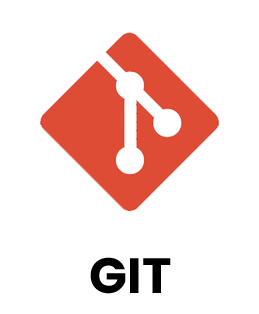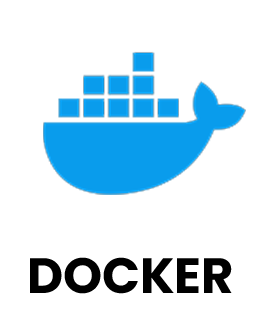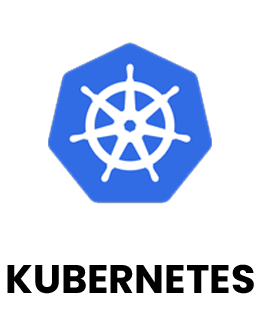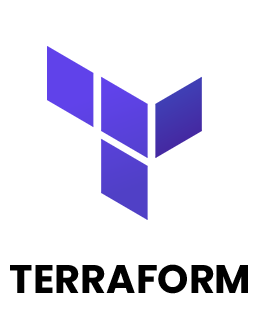You will learn how to execute its concepts to establish a systematic cooperation across development, operations, and QA to provide a higher quality product by taking the coaching from our institute, which is offered by industry professional trainers. Begin today, prepare for the DevOps Foundation test, and get the certificate that will recognise your dedication to career and organisational goals! Candidates who enrol for DevOps programmes will have access to webinars, resources, and advice sessions.
Additional Info
In what ways does DevOps work and how does it work?
Methods of continuous integration and continuous development between development and operations can be put simply in terms of a cycle. In the illustration below, you can see how this process works:
After that, we will examine each step, but it is important to note that the order is not such that they are chronological, since DevOps occurs when we discuss digital products that are already in the market:
Development :-
An individual or a team plans and codes the new solution during the development phase. The selection of modules and algorithms is based on feedback from the operations team. Planning is followed by coding.
The developers at this stage often make use of tools such as Git, Jira, and Confluence. It is essentially the team that develops the algorithms.
Tests :-
It is really important to test new code before we implement it in operation to identify any potential bugs or performance issues, right? Through automation, this can be accomplished.
TestNG, Selenium, and JUnit are some tools that can be used for this. These solutions streamline our process and reduce errors while improving application performance.
Continuous integration:-
DevOps revolves around this concept. The operations team provides feedback to the development team during this phase. New systems are also implemented and testing is integrated. Jenkins, Hudson, and Bamboo are the most prominent tools that stand out. DevOps structures rely on them for stability.
Implementation:-
The action takes place at this moment. In order to implement all new applications already developed and tested, the operations team must do so. Team members must be at their best during this delicate moment. Automating is thus even more crucial because of this reason.
The management tools Puppet, Chef, and Ansible can be used to implement and schedule software updates on servers. Unlike traditional computing tools, containerized tools such as Docker ensure that production environments are error-free.
Monitoring :-
In addition to detecting bugs that may have slipped through testing, monitoring also serves as an opportunity to provide feedback to the development team, which may help prepare you for future problems. The following tools will assist you with this step: Splunk, Nagios, Sensu, and NewRelic. By optimizing the results, you reach the best possible result.
The Devops principles:
DevOps is characterized by an iterative, incremental approach, collaboration, automated and integrated approach, and holistic view. The following are a few key aspects of DevOps.
1. The process of collaboration:-
In order for DevOps to function effectively, both departments must collaborate. Nevertheless, such collaboration leads to greater effectiveness and efficiency, even though it does require a certain degree of discipline and cross-functional training.
2. Quantification:-
A scale is necessary on the basis of which practices and their effects can be evaluated. It is possible to effectively evaluate the impact and improvement of DevOps on your work culture and environment by quantifying the number of deployments, failures, time required for each deployment, and up time before incorporating DevOps into a working environment.
3. Automation:-
We observe high levels of automation in the developing department, however we don't see the same in operations. We can achieve consistency and efficiency across the board by integrating the same level of automation across the board.
4. Holistic:-
An integrated system considers all aspects of a given system, including the ecosystem surrounding it.
Prerequisites for DevOps
1. Containers Understanding:-
A container is a virtualized environment that enables developers to deploy code and create applications right from their laptops. Contrary to traditional methods of hardware virtualization, containers offer additional benefits. Virtualized environments are lightweight and scalable thanks to containers since the operating system is virtualized, not the hardware.
Container orchestration systems, such as Kubernetes, help to automate the provisioning of infrastructure using containers. Docker, Kubernetes, Vagrant, and other containers technologies should be part of every DevOps engineer's resume. Application deployment and shipping have been revolutionized by containers. By using containers, developers are able to develop within precisely targeted environments.
2. Tools and technologies used in DevOps:-
With DevOps methodology, you instill a variety of different tools with different functionalities, such as configuration management, automation, continuous integration, build processes, code repositories, and containerization. To be knowledgeable about DevOps, a person must know at least one tool from each domain.
A successful contractor should have a thorough knowledge of all the tools used in the market. Chef, Ansible, and Puppet are critical players in configuration management. CI/CD pipelines are created with Jenkins, and containers are created using Vagrant, Kubernetes, and Docker. Monitoring and logging are best handled by the ELK stack, Nagios, Zabbix, and Splunk products.
3. Understanding of scripting languages:-
Perl, Java, and Python are some of the scripting languages that DevOps engineers need to have experience with. In order to automate things the highest possible level, much of the DevOps tools require some level of scripting. Ansible uses the YAML scripting language, which is primarily based on Python, to automate.
Within a configuration management tool, YAML is used to automate a complete workflow. It is also helpful to be familiar with scripting in order to better work with the development teams.
4. Certification and training for DevOps:-
DevOps certification is one of the prerequisites for becoming a DevOps engineer. DevOps professionals have a competitive edge over other professionals in the market through training and certification.
Investing in these certifications will cost you between 200 and 600 dollars, but it is worth it to improve yourself. There are some certifications that can be taken without education, but it is always recommended to take some training in order to gain some hands-on knowledge.
5. A working knowledge of automation tools:-
DevOps frameworks rely heavily on automation. Regardless of the stage of development, testing, or deployment, a DevOps engineer must be skilled in automation. Automating tools require some scripting, so scripting skills are also necessary.
A DevOps professional should be very experienced with Infrastructure as a Code (IaC) which is an automation framework around infrastructure provisioning using configuration management and containerization. He should also be familiar with tools such as Ansible, Puppet, Jenkins, Bamboo, TeamCity, Docker, and Vagrant.
6. Testing:-
Quality assurance and related testing procedures need to be carried out properly at all levels by DevOps professionals. It is therefore essential to have a thorough understanding of the testing tools available in the market before getting started with DevOps. It also allows him to find bugs or errors at any stage during the software development process.
7. Communication and collaboration skills that are excellent:-
Communication and collaboration are the two key characteristics of a DevOps engineer. In addition to communications skills, DevOps engineers also require collaboration skills to bridge development teams and IT departments. Skills in communication help teams achieve a high level of performance by avoiding misinterpretations. It is essential that BDD engineers are good learners, collaborators, and coordinators both in the cloud and in reality.
8. Knowledge of Networking fundamentals:-
You must have a basic understanding of networking to create cloud environments and containerized applications. It is important for the edge services to be networked in order to integrate them across different virtual machines or containers. Additionally, a good understanding of networking is required for the final development of the software and the associated services to be shipped and deployed onto the client's environment.
9. A general understanding of computing:-
The DevOps engineers will work with the IT operations team, testing teams, and software development teams with regularity. DevOps engineers must be knowledgeable about virtually all the concepts in computer science, including algorithms, networking, cloud, data science, etc. Communication between DevOps engineers and the rest of the team is enhanced by this knowledge.
10. A logical approach:-
DevOps engineers may need to make decisions spontaneously to keep the team functioning smoothly. Communicating and collaborating between developers and IT operations is crucial when using DevOps engineers, since they bridge the gap between the two. Engineers within DevOps need to stay rational and logical throughout their work.
During meetings and other forms of communication, they must also display the desired aura and energy. DevOps leads are often viewed as the go-to person for all production issues by management and leadership. As a result, developers and operations professionals must meet these expectations.
11. Passion:-
Passion for his work is expected of a DevOps engineer. Any career path can be successful with the right kind of passion. Having this in place is a crucial DevOps prerequisite you should never ignore.
The benefits of learning DevOps
DevOps has many benefits for anyone involved in the process of creating software, whether they are developers or operators. The following career benefits can be accessed if you enroll for a DevOps certification course, depending on your experience and skill level:
1. Reduce production cycles:-
The production cycle is prolonged unnecessarily by siloed development and operations teams. Collaboration between the two teams becomes harder as the software is implemented. By eliminating silos, collaboration and innovation are accelerated.
2. Increasing deployment success rates:-
One of the most common causes of deployment failures is programming errors. With DevOps, code is frequently released, which ensures that problems are caught at an earlier stage. The recovery time is much shorter when developers and operations teams collaborate.
3. Collaborative and communicative improvements :-
Software development culture has been revolutionized by DevOps. When all stakeholders are involved in the development process, they work towards a common goal instead of working towards different objectives. A synergistic approach improves communication. Developing seamless cycles, finding errors and removing them earlier, and getting to market faster are all benefits of better communication.
4. Increased Efficiency Through Automation :-
Automating the process of developing and testing with continuous integration cuts down on manual processes. There are some aspects of the development process that cannot be automated. Development operations tools, such as: let developers focus on the tasks they know best and leave the rest to other tools, such as: There are many cloud-based platforms available today. As a result, using hardware resources during development ties up relevant system infrastructure unnecessarily. This problem can be resolved with scalable infrastructures, like cloud-based platforms. Compilation of code can be accelerated with acceleration tools. Smoother continuous delivery chain operation with parallel workflow processes.
5. Hire good developers :-
Most often, users become aware of poor code too late, when it's too late for them to do anything about it. Developers vary in their skill level; some are excellent at what they do, while others have poor coding skills. The problem can be solved by DevOps. By regularly assessing developers, each DevOps team member is assigned responsibilities most suited to their skills, which makes it easier to evaluate their performance. Rather than only focusing on coding, DevOps recognizes software creation needs other skills. In addition to these roles, there are many others involved. It is possible for someone who is bad at code to be great at any of the roles on the team, and vice versa. Time and resources are saved when team members are re-tasked earlier in the process.
6. How to Develop a Winning Organizational Culture :-
In addition to improving interpersonal relationships, DevOps teams can build cross-functional trust in the following ways:
In addition, it helps employees understand other teams, their challenges, and how they perform their tasks.
As a team, members know they can rely on other departments and colleagues when they face challenges at work.
Alternative career paths can be shaped by networking across departments.
7. Enhance product quality:-
Developing using the DevOps process leads to reducing instances of unforeseen work, which eliminates the need for unplanned work. When security is considered during the designing and development stage, fewer security issues will arise later, saving time and allowing more resources to be dedicated to other tasks. Every team member is also responsible for quality and security, so the final results are accountable to the team as a whole.
8. Value Yourself More:-
The IT industry is constantly evolving, promising more efficient ways to do things and faster ways to do them. Additionally, industry experts use practical methodologies to enhance the software development process overall. Many IT professionals are left behind or have to switch to a totally different career due to these changes. Staying relevant in an industry that is constantly evolving is easy with the help of a DevOps certificate. When you use DevOps automation, you can do more and help operations more effectively.
9. Become a respected IT professional:-
Since black-hat hacking incidents have increased over the past few years, security is becoming an increasingly pressing concern for many organizations. According to a survey, 54 percent of companies currently rely on DevOps personnel to take care of implementing security measures because of the skills gap for security personnel. This suggests that implementing DevOps security practices can also broaden your knowledge concerning security issues.
10. Earn More Money:-
Companies are increasingly seeking to improve workflow processes by using DevOps practitioners. There is a growing skills gap in IT, and 46 percent of companies need qualified professionals to fill them. It is a challenging line of work, but those who are successful are likely to earn substantial salaries. The average salary for different roles is not radically different, though your salary will depend on your job description. DevOps Release Managers earn an average of $92K, Site Reliability Engineers earn $125K, and DevOps Engineers earn 115K.
Pathway to a career in DevOps:
In engineering, there is no single path to success. It tends to be a role that is more suited to someone interested in network operations or product deployment. Similarly, a systems administrator would benefit from scripting skills, software development, and improved testing and deployment skills. It takes a strong resolve to break away from previous job descriptions and training.
DevOps Salary:
The DevOps category contains more than just jobs. Glassdoor reports that the average salary of a Lead DevOps Engineer is between 137,000 and 182,000. Depending on the position and experience that an individual has, DevOps salaries will differ, but one thing is for sure: DevOps career opportunities exist in many industries.








































